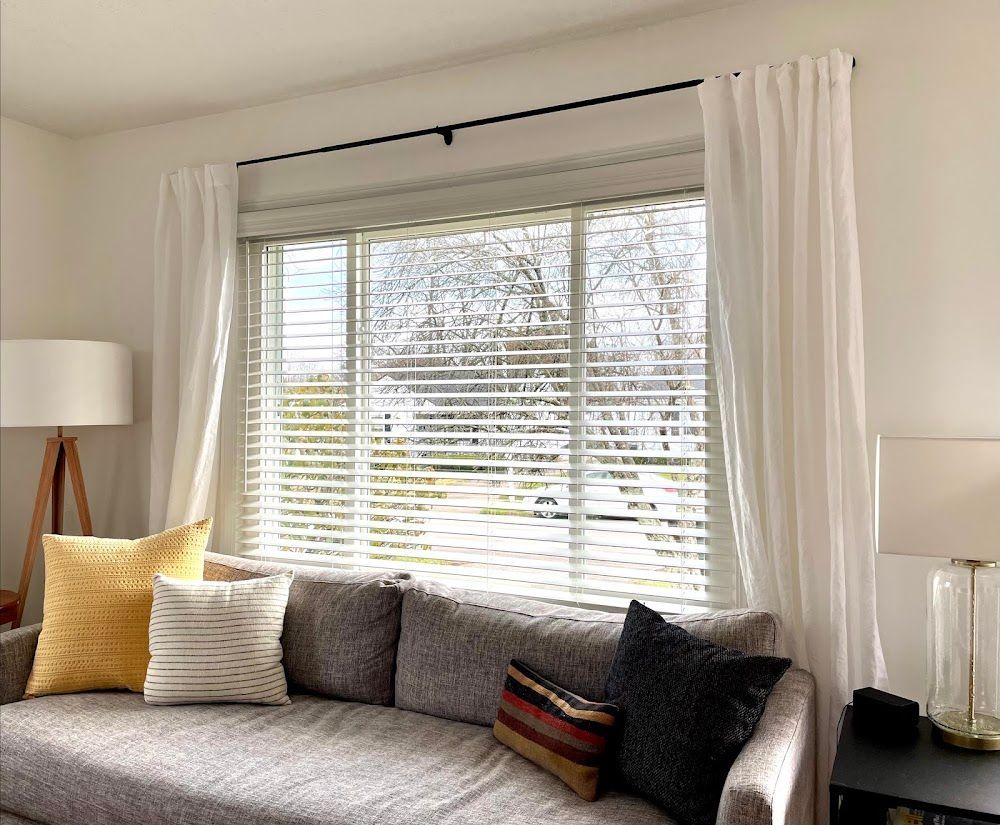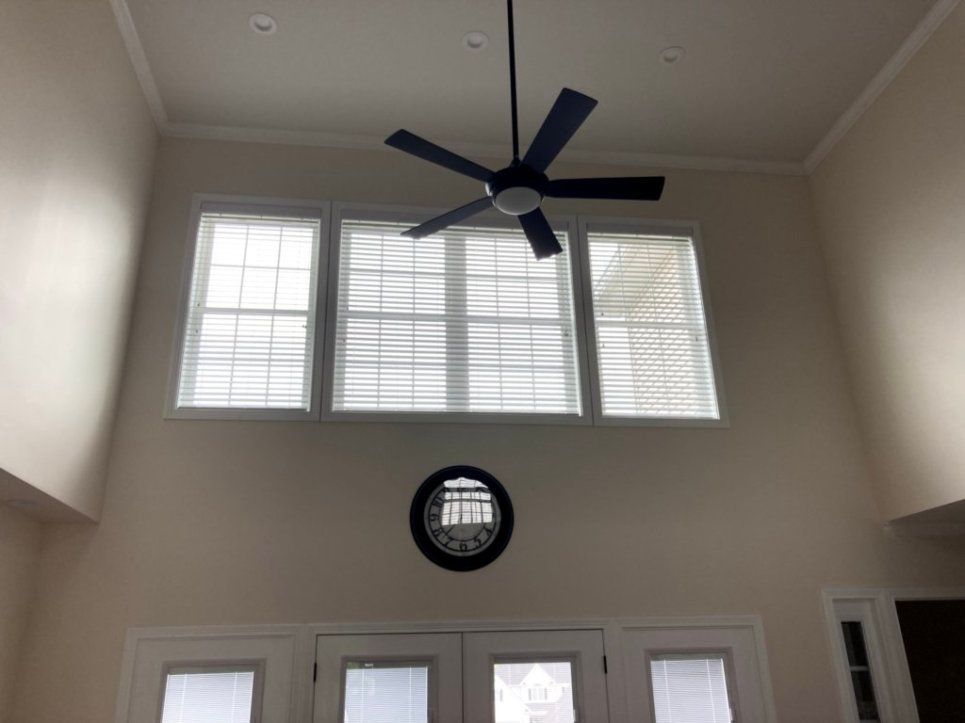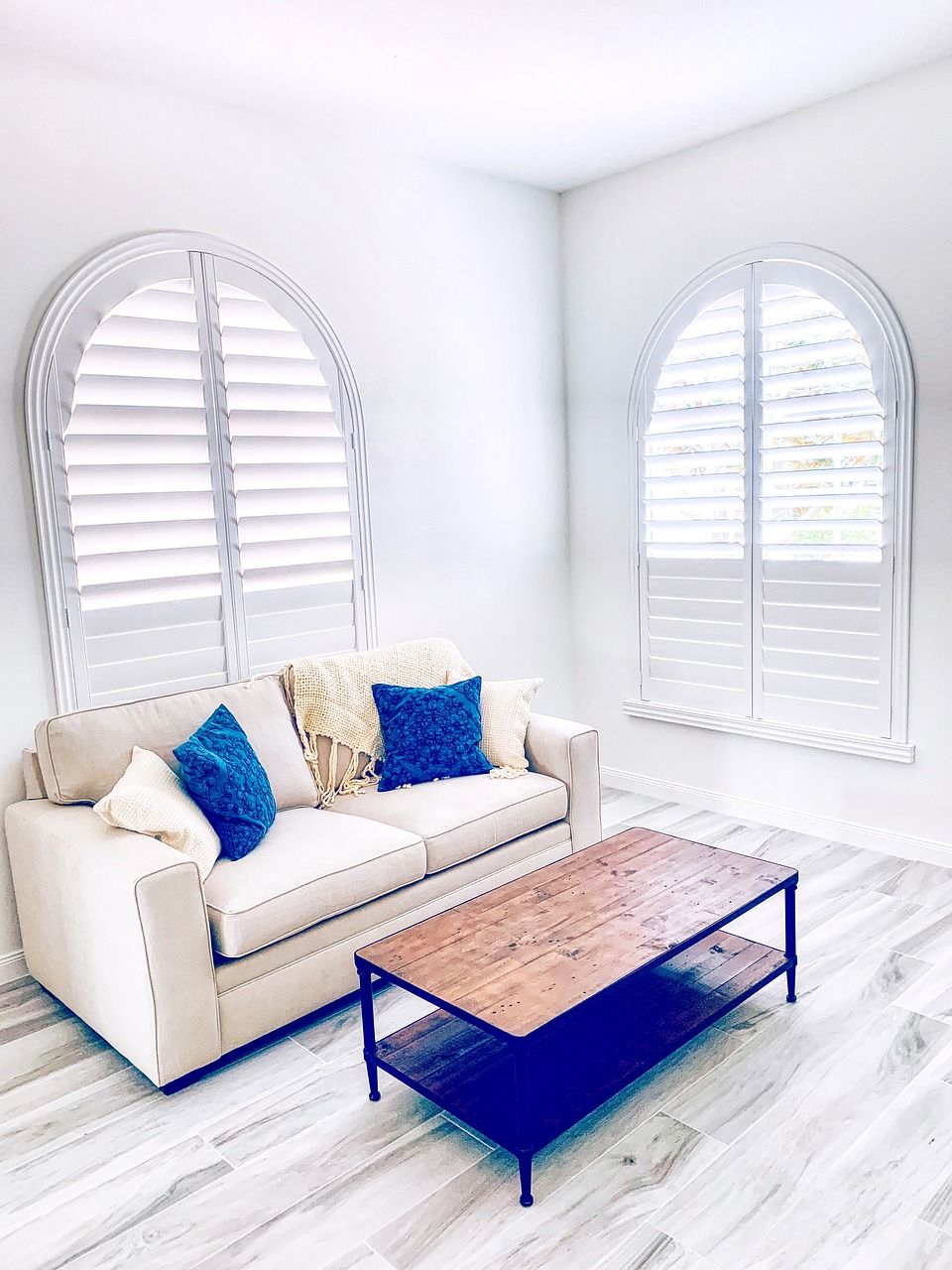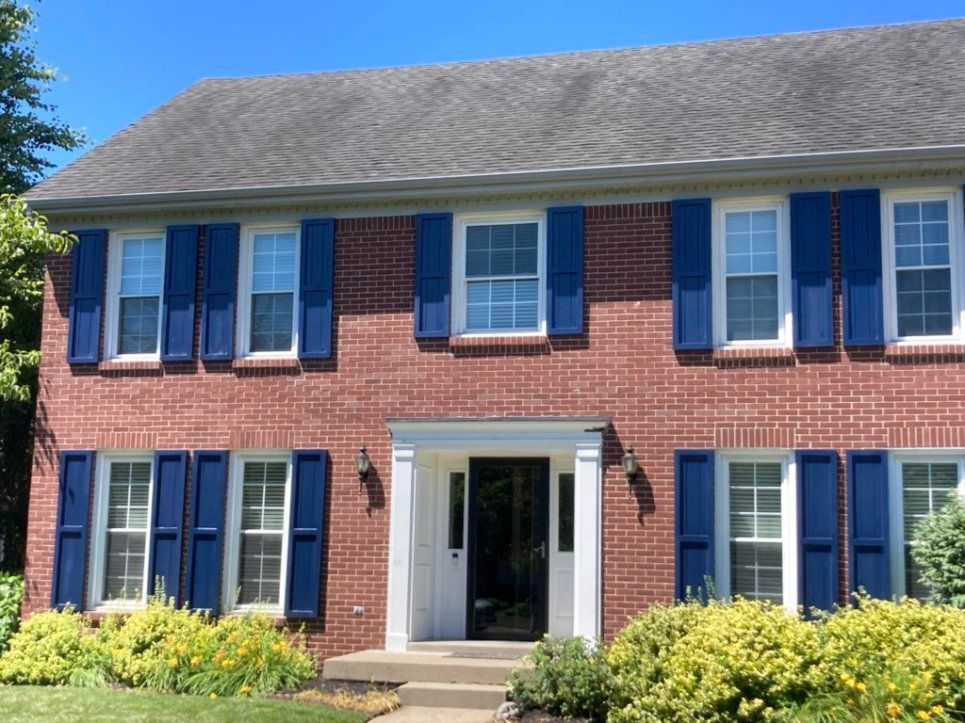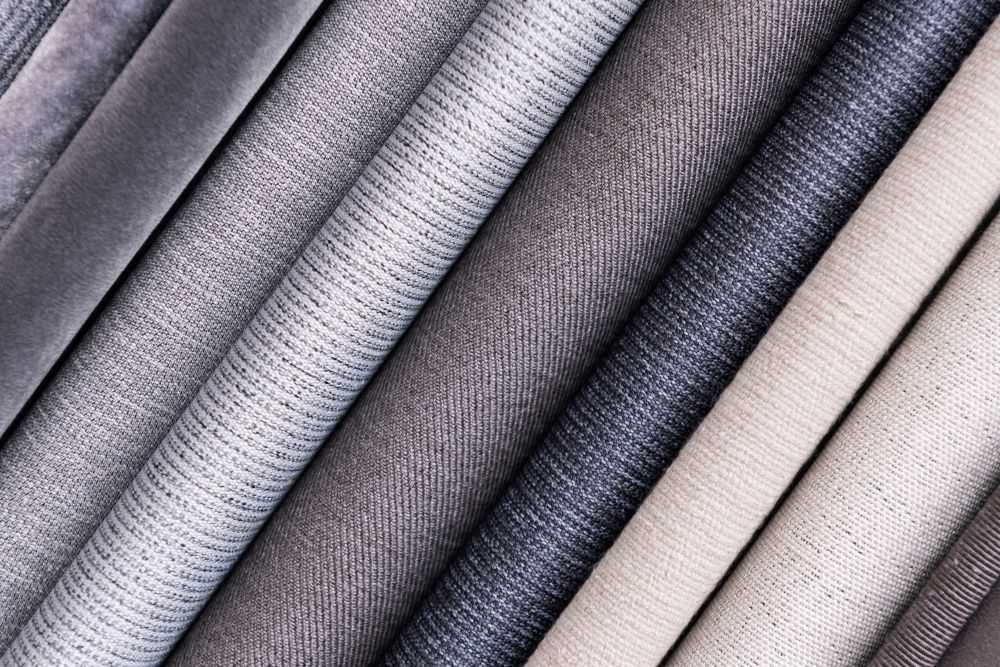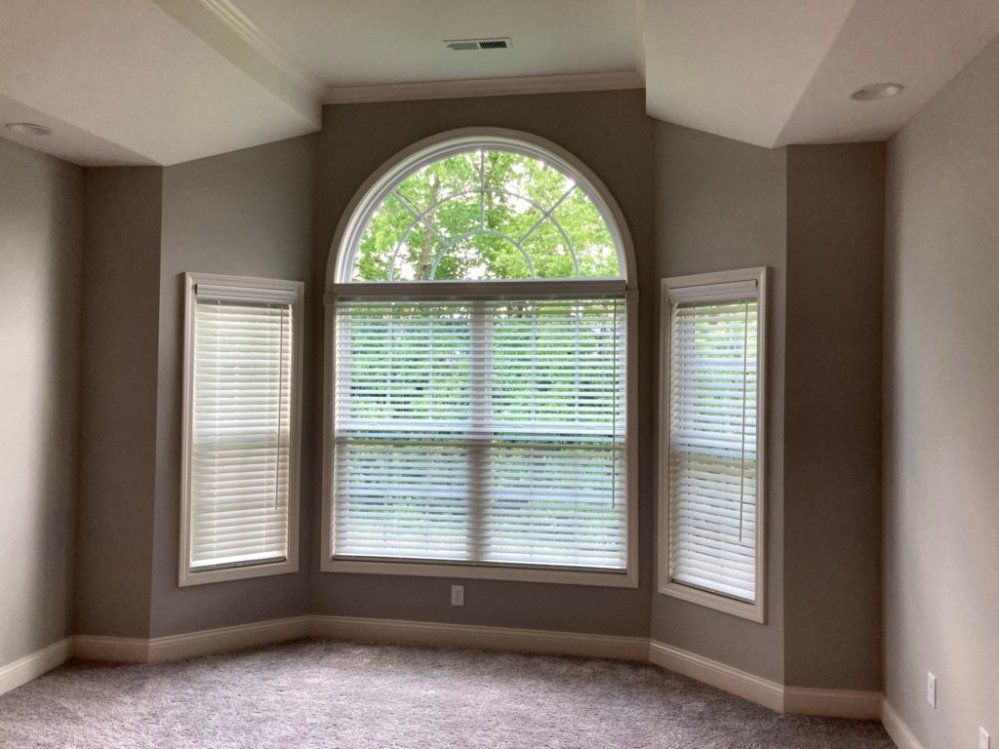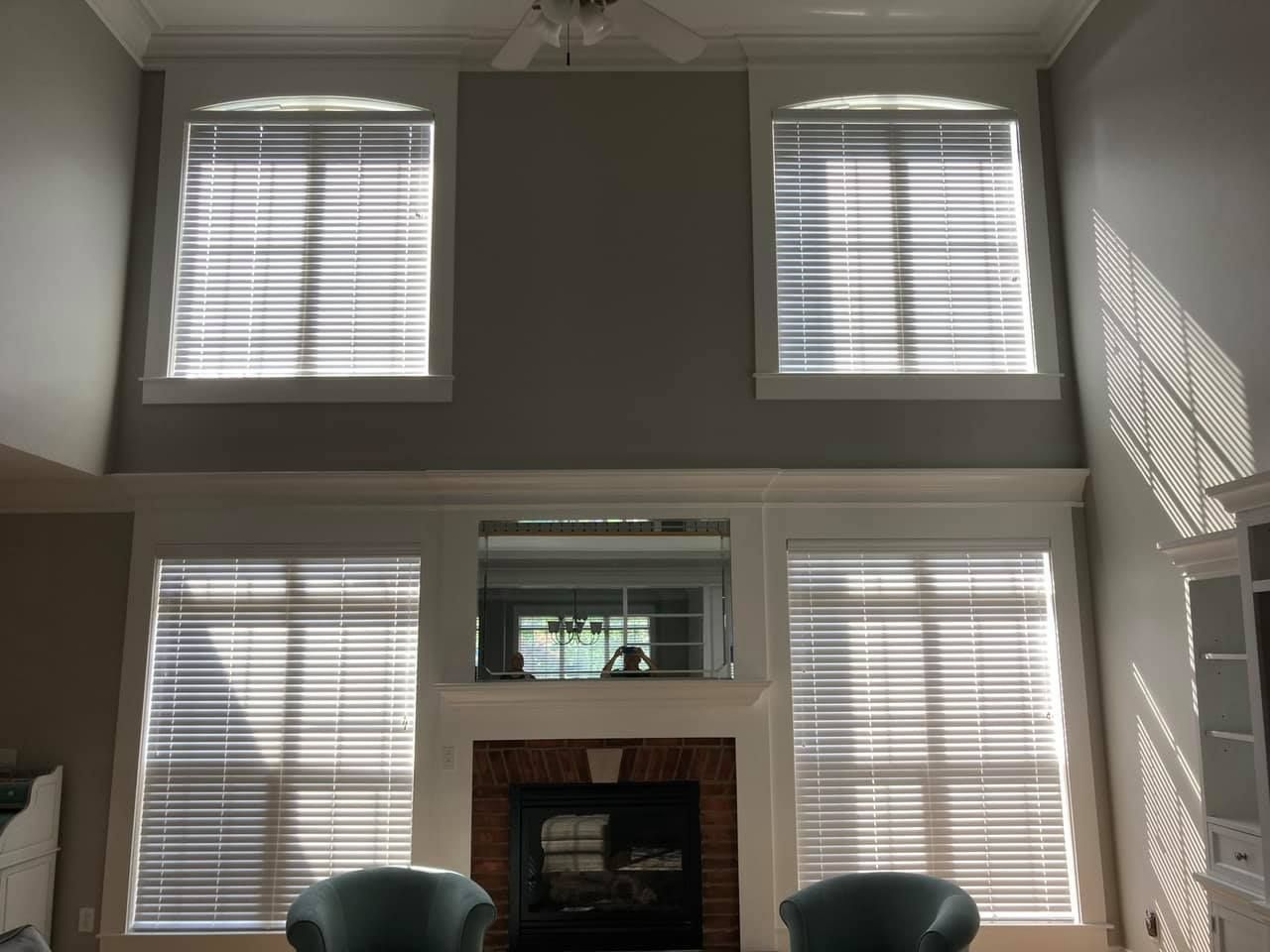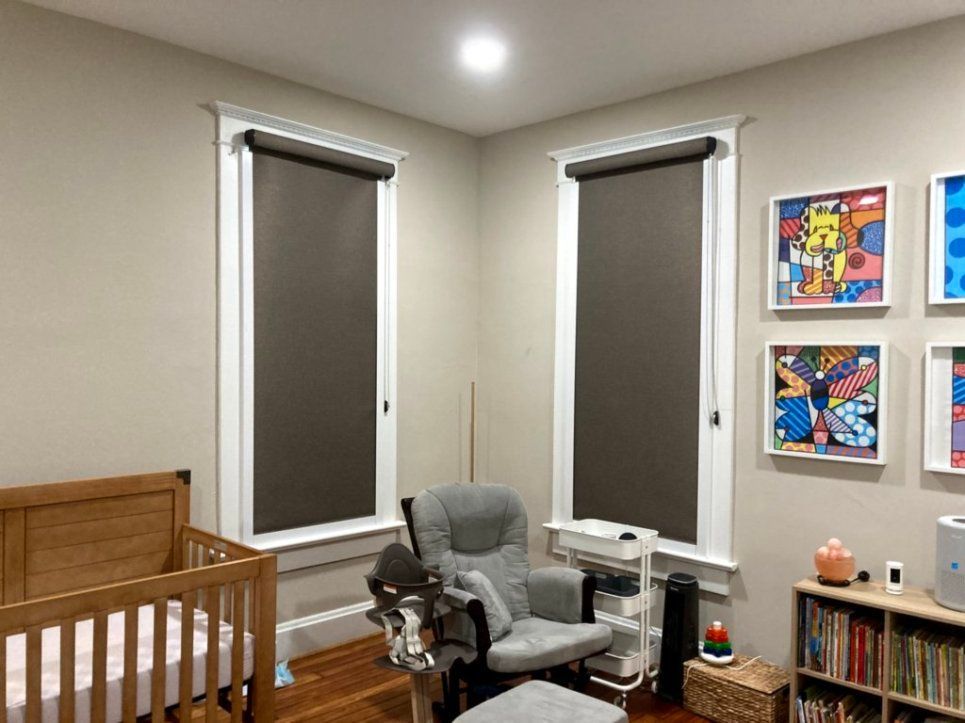Average Cost of Plantation Shutters
April 23, 2024
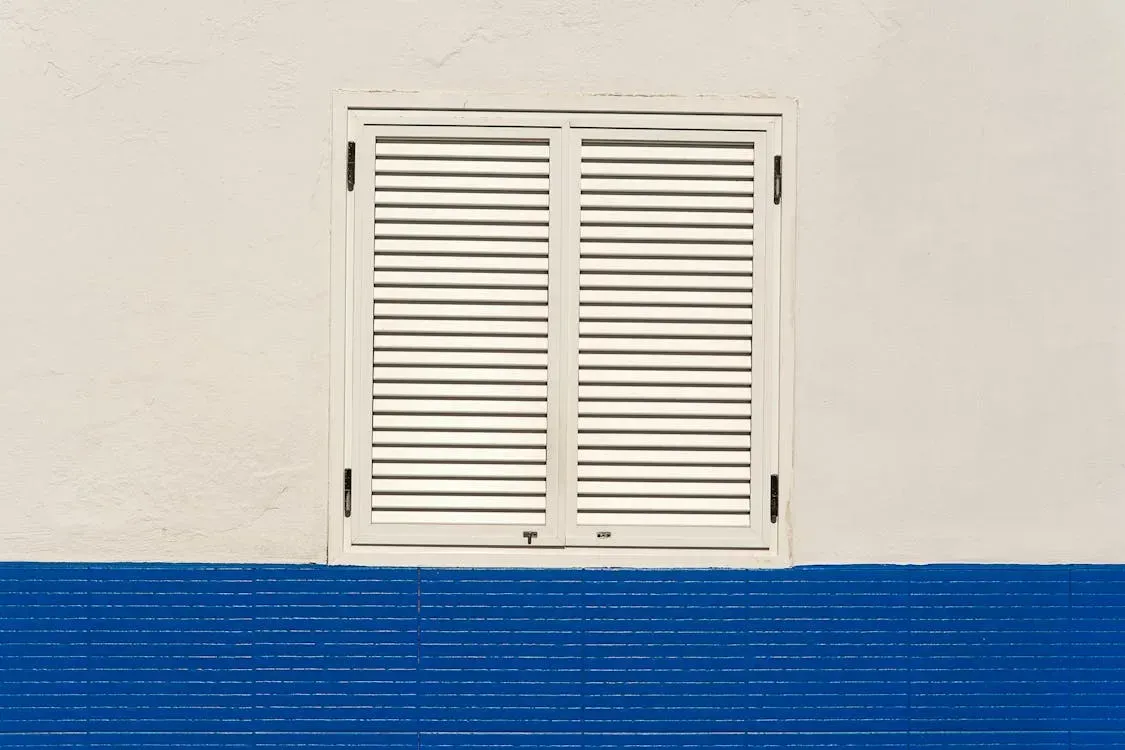
Plantation shutters are a great mix of beauty and function. These classic window treatments can boost your home value, lower your energy bills, and give your space a clean, polished look. But what does it really cost to get them? If you're wondering about the average cost of plantation shutters, you're in the right place.
The cost of plantation shutters depends on a few things—like window size, number of windows, and the type of window you have. Other factors like vinyl, hardwood, or composite materials, and even installation cost, all play a role. On average, you can expect to pay around $45 per square foot, or about $150 per window, but that can go higher or lower depending on the material and style you choose.
In this blog, we’ll break down the average cost, the different types of shutters like faux wood shutters, vinyl shutters, and wooden shutters, and how much it might cost to install them. Whether you're looking for a stylish window covering or a more durable blind alternative, we’ll help you understand what to budget for and what affects the price per shutter or per window. Let’s dive into the pros and cons and find out what shutters can add to your home.
Overview of Plantation Shutters
Plantation shutters come in various styles and materials. The most common materials are wood, composite, vinyl, and aluminum. Each has its pros and cons.
Wooden shutters are classic. They offer a high-end look and are customizable. However, they tend to be more expensive and require regular maintenance to prevent warping or fading. Composite shutters are a blend of wood and synthetic materials. They're less costly than solid wood but still offer a wooden appearance. They’re more durable and resist moisture.
Vinyl shutters are the most budget-friendly. They're lightweight, low-maintenance, and resist moisture. However, they may not have the same elegance as wood or composite. Aluminum shutters are strong and weather-resistant. They're perfect for outdoor use or in high-humidity areas. They can be pricier than vinyl but less expensive than wood.
These different materials mean there’s a range of costs and durability. Shutters are also customizable in style. You can choose different louver sizes, frame types, and colors. This flexibility allows you to match the shutters to your decor or personal taste. Shutters can be used in homes, offices, and commercial settings, giving them broad appeal.
Factors Influencing Cost
Several factors affect the cost of plantation shutters. Material is the biggest one. Wood shutters are typically more expensive than composite, vinyl, or aluminum. The cost of wood can vary based on the type, with hardwoods like oak or maple commanding higher prices.
Size is another key factor. Larger shutters cost more due to the increased material and manufacturing costs. Shutters for small windows are cheaper, while those for large or custom-shaped windows are pricier. The more windows you have, the more you'll need to spend.
Features can also drive up costs. Motorized shutters, for example, are more expensive than manual ones. Custom finishes, unique frame designs, or special hardware can increase the price, too. If you're looking for top-of-the-line shutters with all the bells and whistles, expect to pay more.
Installation and labor costs add to the final bill. Some shutters can be installed DIY, which can save money. However, most require professional installation, especially for larger or more complex setups. Labor costs vary depending on your location and the complexity of the job.
These factors together shape the overall cost of plantation shutters. Understanding them helps you make informed choices when selecting the right shutters for your space.
Estimated Cost Ranges
The cost of plantation shutters varies widely based on material, size, and features. Here's a breakdown of typical price ranges for each major factor.
Material
- Wooden shutters are the most expensive, ranging from $200 to $500 per window. Custom wood shutters or those made from premium hardwoods can cost even more.
- Composite shutters fall in the mid-range, typically costing $150 to $300 per window. They offer a similar look to wood but with added durability.
- Vinyl shutters are the most budget-friendly, with prices between $100 and $250 per window. They are low-maintenance but may lack the rich look of wood.
- Aluminum shutters are typically priced between $150 and $400 per window. They are strong and suitable for outdoor use.
Size and Number of Windows
- The size of the window impacts cost. Larger shutters cost more, with an additional $50 to $150 for bigger windows.
- The more windows you have, the higher the total cost. Multiple shutters can add up quickly.
Desired Features
- Motorized shutters generally cost more, often adding $200 to $500 per window. Remote control features and automated systems increase the price.
- Custom shapes and specialty finishes can add $100 to $300 per window, depending on complexity.
Installation and Labor
- Professional installation costs vary. Expect to pay between $150 and $300 per window for labor, depending on your location and the difficulty of the installation.
With these estimated cost ranges, you can better understand what to budget for your plantation shutters. Keep in mind that additional customization or unique features can increase costs. Plan accordingly to meet your budget while getting the shutters you want.
Cost-Effective Tips for Buying Plantation Shutters
Finding the right plantation shutters for your budget can be tricky. These tips will help you get the most value without breaking the bank.
Bulk Purchases
Buying in bulk can save money. If you're planning to install shutters throughout your home, ask about discounts for multiple windows.
Sales and Promotions
Look for sales, especially during home improvement events or off-season times. Some retailers offer discounts around holidays or during special promotions.
Choose Basic Features
Stick to the basics to keep costs down. Fancy finishes, motorization, or custom shapes increase the price. If you don't need them, opt for simpler designs.
Compare Quotes
Get multiple quotes from different suppliers. This allows you to compare prices and choose the best deal. Don't just go with the first quote you get.
DIY Installation
If you're handy, consider installing the shutters yourself. This can save a lot on labor costs. However, only do this if you're confident in your skills. Mistakes in installation can be costly.
Buy Durable Materials
Choose materials that last. While wood is beautiful, it requires more maintenance. Composite and vinyl are more durable and can save money in the long run.
Warranty and Guarantees
Check for warranties. A good warranty can protect you from defects or other issues, potentially saving you money on repairs or replacements.
These cost-effective tips can help you balance quality and affordability when buying plantation shutters. By considering them, you'll be better prepared to make a smart purchase without overspending.
Conclusion
Plantation shutters can be a valuable addition to your home, offering style, privacy, and energy efficiency. Understanding the factors that influence cost—such as material, size, number of windows, and additional features—helps you make informed decisions when purchasing shutters.
Material plays a significant role in pricing. Wood is often the most expensive, while vinyl and composite options are more budget-friendly. Size and the number of windows also impact cost. Additional features, like motorization or custom finishes, can increase the price.
Consideration of these factors, along with tips for saving money, allows you to find plantation shutters that fit your budget. Whether you're aiming for a high-end look or a simple, functional option, knowing what to expect in terms of cost is essential.
Planning ahead and getting multiple quotes, you can find a balance between quality and affordability. Be sure to consider installation costs and choose shutters that suit your style and home design.
Looking for top-quality plantation shutters and more? Commonwealth Shutters and Blinds has you covered. Serving Lexington, Louisville, Cincinnati, Richmond, and Georgetown, we offer a wide range of window treatments. From Bahama shutters to roller shades, we have it all. Call us today for a free consultation and discover how our expertise can transform your space.
Frequently Asked Questions
What are the maintenance requirements for different shutter materials?
Wooden shutters require more maintenance to prevent warping and fading. Regular dusting and occasional polishing are needed. Composite and vinyl shutters need less maintenance; a simple wipe-down is usually enough.
How do plantation shutters affect home resale value?
Plantation shutters can increase your home's resale value by adding a classic aesthetic and improving energy efficiency. Buyers often view them as an upgrade, which can lead to a higher sale price.
Are plantation shutters energy-efficient?
Yes, plantation shutters can improve energy efficiency by providing insulation. They help keep your home warm in winter and cool in summer, reducing energy costs.
Can I customize plantation shutters for unusual window shapes?
Yes, plantation shutters can be customized for unique window shapes like arches or circles. This customization can increase the cost, but it ensures a perfect fit.
How long do plantation shutters typically last?
Plantation shutters can last for decades with proper care. Wooden shutters may need more frequent maintenance, while composite and vinyl shutters are more durable.
Do plantation shutters require professional installation?
Professional installation is usually recommended, especially for larger or custom shutters. DIY installation is possible, but it requires precision to ensure proper alignment and fit.
Is it possible to motorize plantation shutters, and what is the cost?
Yes, you can motorize plantation shutters for convenience. This feature adds to the cost, often ranging from $200 to $500 per window, depending on the system.
Are there eco-friendly plantation shutter options?
Some manufacturers offer eco-friendly options, using sustainable materials or energy-efficient production methods. Look for shutters with certifications indicating they are environmentally conscious.

